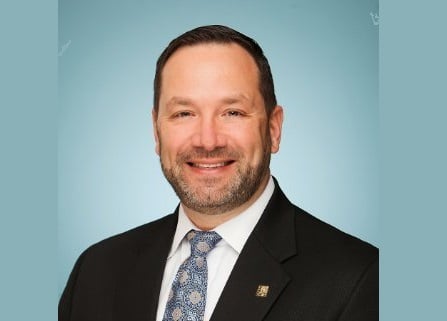With a history spanning 175 years, Harford Mutual is a pillar of the insurance community. And, though the company has grown and evolved over nearly two centuries, Harford Mutual has always strived to create an atmosphere conducive to professional and personal development for their employees.
We caught up with Steve Linkous, CEO of Harford Mutual, and HR Director Patrick Gagen, to talk about what organizational change the company has undergone and what they’re preparing for in the future.
“Several years ago, when the Millennials started entering the workforce, we knew we had to take a different approach to how we address HR,” explained Linkous.
“We couldn’t maintain the same traditional approach to our HR operations. Instead, we had to look at how we attract, retain, encourage and develop all of our employees in this new world.
“We’re not just managing Millennials; we’re bringing together multiple and very diverse generations in the same workspace stretching from the Millennials to Baby Boomers and beyond. For us, it’s more of a transformation and an understanding of how we treat HR in the organization.”
Speaking to Gagen, he told us that one of the main advantages of working at a smaller company is that you can give your employees more attention when it comes to growth, as well as offering a myriad of alternative opportunities.
“When you’re a larger business, a lot of the opportunities that present themselves are vertical,” he says. “At Harford Mutual, we’re fairly flat, meaning there are lots of opportunities for employees to move from side to side and really grow into different roles.
“The culture here encourages continuous learning. The nature of insurance requires you to be completely ingrained in the sector for a while in order to fully understand the unique aspects it holds. We have employees here who have cut their teeth working with brokers and agents, and they’re now able to pass down their knowledge to the new generation.”
“We’re continually assessing how we can become more progressive in terms of what we offer to our employees,” explained Gagen. “The foundation of what we offer right now is opportunity, both in what Steve outlined, but also on the educational side. We pay for our employees to obtain their insurance designations, complete post-graduate degrees, and pursue appropriate certifications – all benefits we will continue to offer moving forward to attract new talent and reward current staff.”
Harford Mutual reached $200 million in premium revenue in 2017 with a staff of 150 in one central location. Linkous believes this intimate number means workers benefit from mentor-driven programs and initiatives designed to help employees develop their skills.
This determination to involve all sectors of the multi-generational workforce is something that should ensure Harford Mutual’s continued success. As CEO Linkous explained, it’s his personal mission to be inclusive of all ages – not just the Millennial sector.
“I think we should turn the conversation to the challenges and benefits of the multi-generational aspect of our current workforce and not focus only on the unique characteristics of the Millennials,” he explains. “By keeping the conversation at that higher level, you won’t disenfranchise the Gen X-ers or the Boomers, and you can also better prepare for the generation emerging behind Millennials – the I-Gens.
“I think this is all part of a a bigger conversation on how we can evolve organizations through communications, both strategic and operational, and how we look at benefits packages that don’t just address the needs of a single generation, but appeal to all the generations.
“Making sure that you have development programs and educational opportunities within a vibrant culture that allow all of the generations to thrive, I believe this will be a huge benefit to any company going forward.”
To find out more on this issue, Linkous will be speaking at our Millennials in Insurance Masterclass, February 8th 2018. For more information on our speaker line up and agenda, click
here.
Related stories:
C-suite talks HR: Michael Burns, CEO, Invictus Games
Which C-suite execs matter most to HR?

